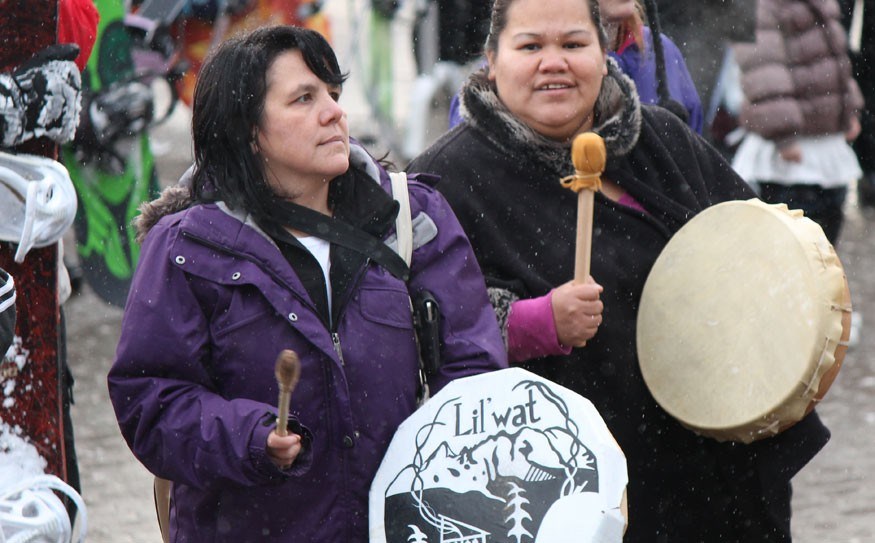When members of the Lil'wat First Nation vote for a new chief and council on March 9, they will also be asked to pass two referendums that have been many years in the making.
The first changes the Lil'wat definition of who can be a member of the community. The referendum changes and broadens the Membership Code, first passed in 1987, into a Citizenship Code.
The second is a new Election Code, which will remove the community's election rules from the Indian Act and allow the Lil'wat leadership to implement the results of a 2007 survey of members.
"These are very significant votes, the Citizenship Code is being updated but the Election Code is our first. In however many years I'm not aware of any as significant," said Chief Lucinda Phillips.
In terms of the Citizenship Code, one of its primary aims is to define the parameters of Lil'wat citizenship as a nation. The code will define the eligibility of children to hold citizenship. In the past, "the double-parent rule" meant that both parents needed to be Lil'wat in order for their child to automatically have Lil'wat citizenship. Other children needed to be "voted in" by the community for citizenship.
If the referendum passes, it will grant automatic membership to anyone with one parent who is a band member.
"In 2003 our membership gave our chief and council of the day a mandate to update the membership code, as it was then called," Phillips said.
"We ended up having over 300 children that needed to be voted in because one parent was from another community."
This unfairness had a huge impact on self-identity for these children, Phillips added.
As part of the Citizenship Code referendum, the community's name will also change — from the Mount Currie Band to Lil'wat.
"The Mount Currie Band name was given to us by the Indian and Northern Affairs department; I don't even know when. We're always going to be, within the B.C. map, named Mount Currie, but as first nations, determining and calling ourselves who we are, Lil'wat Nation, it's just a very significant and heart-warming feeling," Phillips said.
The citizenship code will come into effect the day after the vote, if it passes.
The second vote — for a new Election Code — would bring in changes desired by the community, including a two-chief system, longer terms for council, changes to eligibility criteria for candidates, and more transparent rules consistent with good governance.
"It really is about self-government and moving away from the Indian Act and by putting together an election code we're now taking another component out of the Indian Act," Phillips said.
If it passes the next step is to refer it to the federal government. The code would not be fully implemented until 2015. Half of British Columbia's 203 First Nations communities already have an Election Code in place.
Three people are vying to become the chief and 33 people are vying for 12 council seats. The vote is at the Ull'us Community Centre in Mount Currie on Saturday, March 9 from 9 a.m. to 8 p.m.




